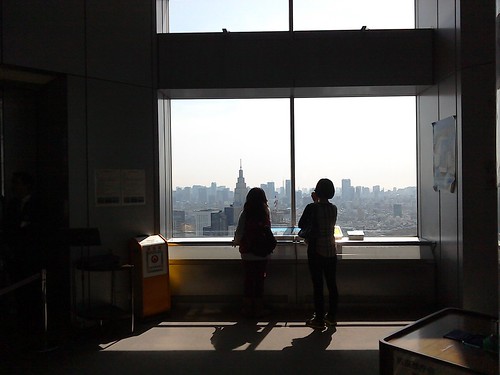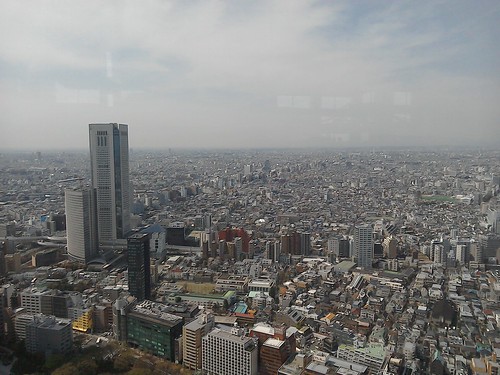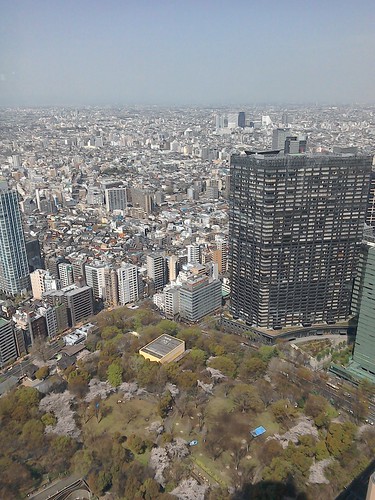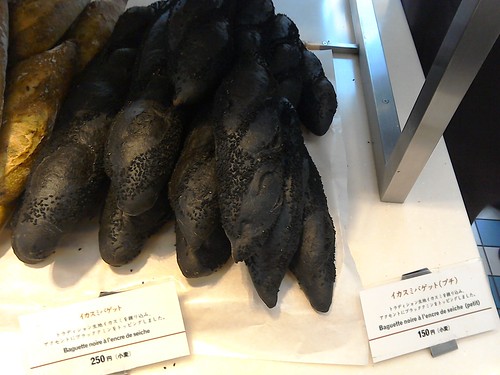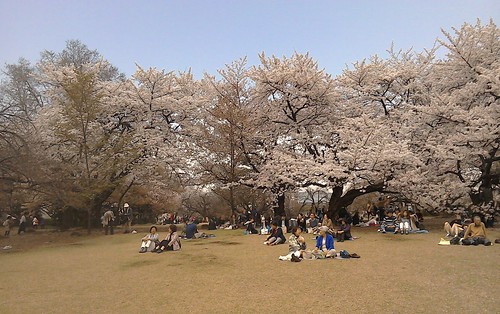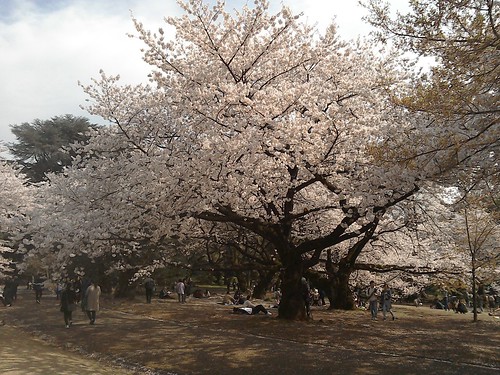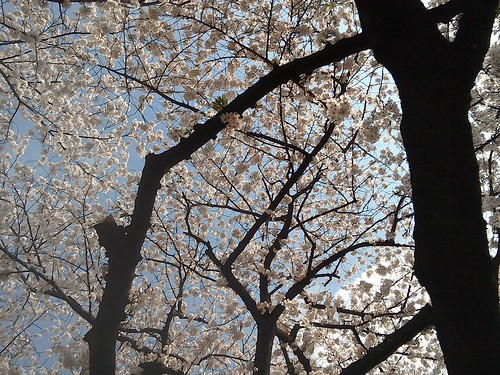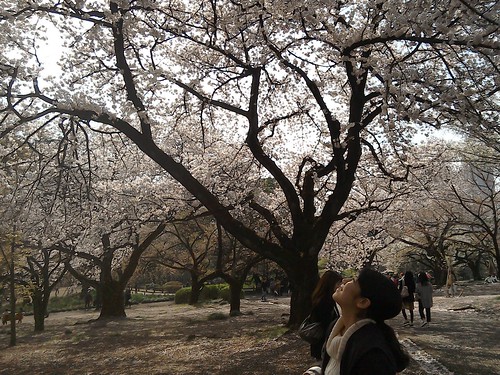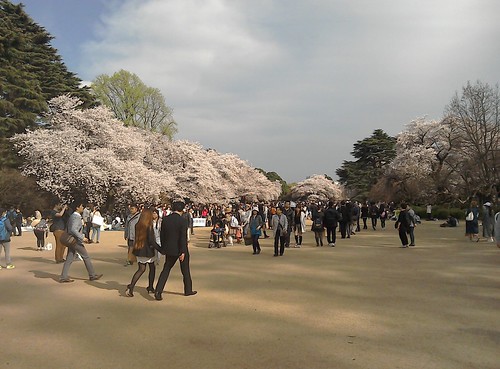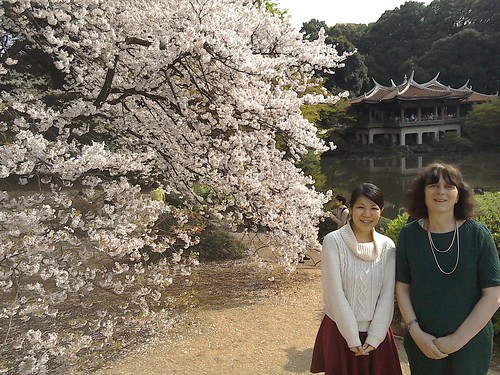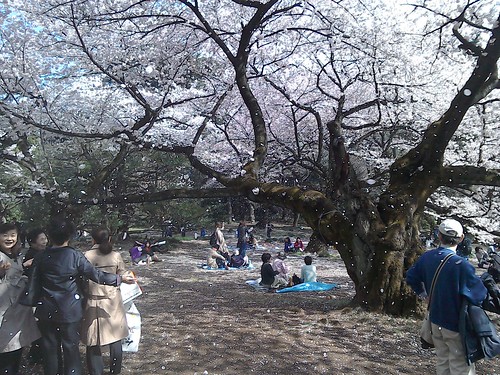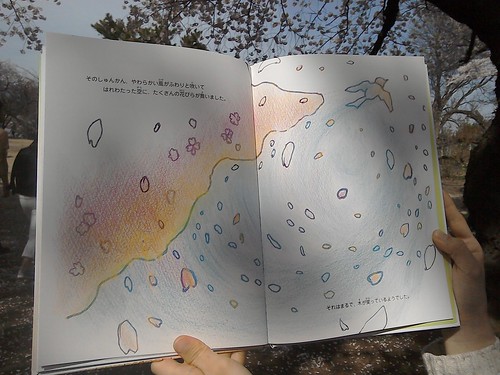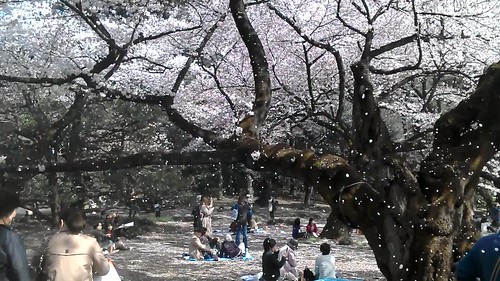I know you've been worrying about my luggage, so let me reassure you that on the way back from the USA my bag was neither lost nor broken into the by the TSA.
However, the United Airlines system did decide to charge me $25 dollars to check it, despite my ticket making it clear that I was entitled to one piece of checked luggage gratis. The assistant said he'd never come across this error before but could do nothing about it as he didn't have supervisor privileges, and his supervisor wasn't on duty. I should claim it back from United at Heathrow, he said..
The United people at Heathrow told me they could do nothing, but advised me to use the refund facility on the website.
The website repeatedly got me to scan and upload the relevant documents with an accompanying narrative, only to freeze when I hit Submit.
On the plus side, today my car died, which did a splendid job of putting the loss of $25 in perspective.
I blame Diana Wynne Jones's travel jinx.
Viewing Blog: Don't Eat With Your Mouth Full, Most Recent at Top
Results 1 - 25 of 1,270
Books, life, and other ponderingsStatistics for Don't Eat With Your Mouth Full
Number of Readers that added this blog to their MyJacketFlap: 1
Blog: Don't Eat With Your Mouth Full (Login to Add to MyJacketFlap)
JacketFlap tags: real life, Add a tag
Blog: Don't Eat With Your Mouth Full (Login to Add to MyJacketFlap)
JacketFlap tags: work, real life, Add a tag
I've been in Ohio for a couple of days now, and am well over the jetlag, though it's been replaced by common or garden tiredness from all the socializing, watching papers, getting up early for various reasons, etc.
My trip to the US began with a very pleasant detour to Boston where I stayed with  diceytillerman. I'm just sorry it was such a short visit - really only a few hours.
diceytillerman. I'm just sorry it was such a short visit - really only a few hours.
I'd forgotten what colourful names the stations on the T have: there's something rather wonderful about getting a train to Alewife, Maverick or Wonderland. Then again, I might think the same about Cockfosters if I weren't used to it...
The trip was smooth, except that when my suitcase appeared on the baggage claim belt it was swathed in tape, courtesy of the Transportation Security Administration, who had broken the lock off and inserted the following billet doux:
There seemed to be no one to blame, except perhaps for Osama bin Laden, so I bought a new padlock and thought no more about it. (This new lock was, as it happened, one of the TSA-approved 'Safe Skies' variety.)
The next day there were traffic control delays, and in the end I was rerouted to Columbus via Washington. I wasn't too surprised on reaching the end of my journey to get an email telling me that my luggage hadn't been on the same flight as me (after all, something similar happened last year when I got a tight connection to Tokyo) but it made for a rather sleepless first night in Columbus, having no clean clothes to change into and hoping that the case would catch up some time overnight.
In the morning it duly arrived, and just like last year, there was a moment of intimacy between suitcase and human being: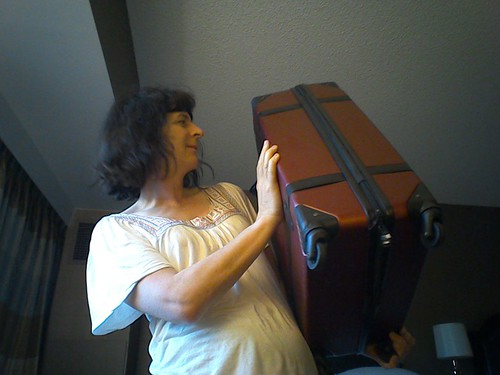
The poor thing had, once again, been visited by the TSA, who had removed the TSA-approved lock and left another note apologising for doing so. Was I just very unlucky, or does this happen to everyone's luggage?
Anyway, so far Columbus is fun. The conference is excellent, the weather not quite as diabolically hot nor the air-conditioning as brutally cold as I'd been fearing, and I've been hanging out with friends old and new. I gave my paper on Puella Magi Madoka Magica at 8am this morning to a select audience of early birds, but it went pretty well - and in fact one of the major journal editors invited me to work it up into an article. Which I'd been thinking of doing anyway, but certainly will now.
As promised by  kalimac, I'm staying right across from the Statehouse, which boasts a large bronze statue of William McKinley, flanked by two groups of allegorical supporters, of which this is the more inscrutable:
kalimac, I'm staying right across from the Statehouse, which boasts a large bronze statue of William McKinley, flanked by two groups of allegorical supporters, of which this is the more inscrutable:
Blog: Don't Eat With Your Mouth Full (Login to Add to MyJacketFlap)
JacketFlap tags: work, real life, madoka, Add a tag
I'll be off to the ChLA in Columbus, Ohio on Tuesday - stopping for a night en route to stay with Rebecca in Boston. Is anyone else here likely to be headed to that conference?
I know nothing of Ohio - nothing. This makes it difficult to get as excited about going there for the first time as the place no doubt deserves, but it's too late to become an ohioologist in the short time remaining, so I'll have to wing it. One thing, though: after getting ill the last time I was at an American con through all the sudden changes between extreme heat and brutal airconditioning, I will be packing plenty of layers.
My talk? Why, it will be on Madoka Magica, of course. Specifically: "Shoujo versus Seinen? Dual Address and Misdirection in Puella Magi Madoka Magica (2011)". Right now I'm cutting like mad, because I have (naturally) far too much to say on the matter.
Blog: Don't Eat With Your Mouth Full (Login to Add to MyJacketFlap)
JacketFlap tags: Add a tag
RIP Dave Swarbrick. LIstening to Fairport Live Convention while reading the Mabinogion in a sunlit room one summer is one of my abidingly happy memories, circa 1978.
Add a CommentBlog: Don't Eat With Your Mouth Full (Login to Add to MyJacketFlap)
JacketFlap tags: books, Add a tag
I've occasionally posted dubious quotations here before. This one may be entirely genuine, but I don't recognise it, and to me it feels considerably too saccharine.
So, all across the internet you will find the following attributed to A. A. Milne: “Piglet noticed that even though he had a Very Small Heart, it could hold a rather large amount of Gratitude.”
Is that for real? I could check by rereading the books, but if any of you recognise the quotation from either of them, I'd be pleased to know.
Blog: Don't Eat With Your Mouth Full (Login to Add to MyJacketFlap)
JacketFlap tags: real life, Add a tag
"Well, they'll just have fight it out between them who gets to be First Saxon Priest!"
...
"You can't take into that key - they won't able to sing low enough. They're not Russian monks!"
...
I'm at my mother's house, coinciding happily with my brother, whose phone voice you can overhear on the other side of the room. He's talking to his collaborator, Peter Wiegold, putting the finishing touches to King Arthur, a modern version of Purcell with animations, Dryden as a straight man, a frost fair setting, "funky rhythms" and... well, Purcell's music.
It's all happening at a Victorian Music Hall near you (if you live in the East End of London), on the 14-15th June. I'd love to go, but June is so crazy that I can't even get away even for a night. Besides, they're sold out.
(At least I get to see the animations.) Add a Comment
Blog: Don't Eat With Your Mouth Full (Login to Add to MyJacketFlap)
JacketFlap tags: maunderings, books, Add a tag
"Whan that Aprille with his shoures soote,
The droghte of March hath perced to the roote..."
Okay, we all know about April showers, but what about the drought of March? March certainly isn't a month that feels particularly dry, and in recent decades Met Office data confirms that in London it has been, if anything, rather wetter than April.
Of course, poetic licence and all that, but surely the lines wouldn't have been so successful if Chaucer had been saying something palpably untrue?
Well, the climate was probably a bit different: Chaucer was living through the early years of the little ice age, after all, and perhaps dry Marches go with that territory - but I don't remember anyone else mentioning them, ever.
Blog: Don't Eat With Your Mouth Full (Login to Add to MyJacketFlap)
JacketFlap tags: current affairs, Add a tag
Blog: Don't Eat With Your Mouth Full (Login to Add to MyJacketFlap)
JacketFlap tags: real life, Add a tag
Some people hate voicemail, and I don't know why.
My daughter is one such. Despite having a voicemail greeting on her phone inviting callers to leave a message she makes a point of never listening to them, and feels that this is both normal and obviously justified behaviour. When asked why, she suggests something on the lines of voicemail being ridiculously cumbersome and time-consuming, making its use an antisocial imposition on the poor phone-owner. And so I suppose it is, if you have a vanishingly small amount of patience, in the same way that actually talking to people can be, but this hardly explains the totality or vehemence of her opposition.
If the message is a simple one, like "What time will you be home for dinner?" I'll normally text rather than leave a voicemail, knowing her preferences. But not all messages are that straightforward. What if I want to know her choice from a variety of menu options, and whether she'd like to bring a friend round and whether, if so, they're vegetarian, etc.? I could do that much more quickly as a voice message than via a text. Is it really unreasonable to do so - especially as replying in kind to such a text would be almost equally onerous?
I thought perhaps it was just my daughter and her immediate circle who felt this way, but when I recently spoke to a friend of mine in her mid-20s, I watched in surprise as her hands instinctively bunched into fists at the very mention of the V word. Like my daughter, she felt - she knew - that to use voicemail was to be commit a terrible faux pas. Worse, it was to be a terrible person.
How widespread is this antipathy, and what is the reason for it? Is it perhaps a generational thing? Any explanations gratefully received below.
Blog: Don't Eat With Your Mouth Full (Login to Add to MyJacketFlap)
JacketFlap tags: language, Add a tag
If I mark in a café I'm always rather grateful when the people at the next table speak in a language I don't understand, as it's less distracting. (The marking is why I've not been posting here recently, by the way - but I'm almost done now.)
Anyway, I was happy when a couple of middle-aged Polish women sat nearby this morning. Except that they then started throwing random phrases of English into their conversation. "Chaos theory", said one, in the midst of an otherwise impenetrable sentence. My ears pricked up. "Climate change", rejoined the other a few minutes later with a knowing chuckle. Of course, I couldn't help listening out after that - perhaps more than I would have had I been able to understand every word.
I'm used to this sort of thing when I'm in the presence of Welsh, but I've never had it before from a Slavic language. I hope the quality of my marking didn't suffer too much.
Blog: Don't Eat With Your Mouth Full (Login to Add to MyJacketFlap)
JacketFlap tags: Add a tag
Since one or two people were curious, this is what a pack of Nos looks like. I was commissioned to buy some today to celebrate my daughter's boyfriend's birthday. Here I am taking a break from marking and tea in the cafe afterwards. As you can see, the text and imagery on the package is very whipped-cream heavy, but they still put it in a discreet plastic bag.
I was wrong to say that you get 20 in a packet. As you can see, it's actually two dozen. Or, a score and four more.
Blog: Don't Eat With Your Mouth Full (Login to Add to MyJacketFlap)
JacketFlap tags: Add a tag
As I've mentioned here before, Japanese is one of those languages that likes to dispense with words rendered superfluous by context. Rather than say, "I went shopping", in Japanese one says "Went shopping", if context makes it clear that you're talking about yourself.
This tendency to drop words means that declarative sentences sometimes merge into exclamations. Where in English we might say "My hand hurts!" (which might be rendered literally as "Watashi no te ga itai desu ne!"), in practice one would be much more likely to say simply, "Hurts!" ("Itai!"). In English, we have separate exclamations for such occasions ("Ow!", "Ouch!", etc.); in Japanese, the exclamation is just a shortened version of the declarative sentence.
This crops up in other contexts, too. If something is delicious we might say "This is delicious!" (declaractive) or "Yummy!" (exclamation); in Japanese, "Oishii!" serves both purposes. If something is cute, we might say "That's cute!" (declarative) or perhaps "Awww!" (exclamation). In Japanese, both are "Kawaii!"
When I was in Japan in last month, a cute dog came into the room where I was with my Japanese friend, and she not only exclaimed "Kawaii!", she said it at frequent intervals over a period of a couple of minutes, as if keeping up a kind of running commentary on her own feelings. (To be fair, the dog continued to be cute for the whole of that time.)
Blog: Don't Eat With Your Mouth Full (Login to Add to MyJacketFlap)
JacketFlap tags: Add a tag
I've seen a lot of speculation on these questions. I have my own opinion about the relative importance of these factors, but I'd love to know yours.
Blog: Don't Eat With Your Mouth Full (Login to Add to MyJacketFlap)
JacketFlap tags: Add a tag
My mother is too infirm to get to the shops by herself, so she often sends me out to buy fags. I'm always a bit embarrassed to do so, and usually manage to slip into conversation with the shop assistant that they aren't for me, that I've never smoked, etc. My inner prude bubbles straight to the surface.
My daughter is still a month or two too young to buy her own Nos at the local head shop, so when there's a party in the offing I usually end up doing it for her. Here, though, I put on my smartest clothes and affect the most confidently middle-class accent I can muster: "A box of your finest laughing gas, please!"
There's a logic to this behaviour, I suppose, though much of it is perversity on my part. Nos kills one or two people per year in the UK, as opposed to around 100,000 killed by smoking. Adjusted for the number of users, you are 5,340 times more likely to die of smoking than of using laughing gas. Naturally, it's laughing gas rather than tobacco that the government is proposing to make illegal.
I also feel affection for Nos because its use as a recreational drug started right here in Bristol, with Sir Humphrey Davy. (S. T. Coleridge was an early adopter, unsurprisingly.)
On the other hand, I've not tried it myself.
Blog: Don't Eat With Your Mouth Full (Login to Add to MyJacketFlap)
JacketFlap tags: Add a tag
This month's Awfully Big Blog Adventure post is inspired by a programme I've barely watched, yet feel as if I know well.
Add a CommentBlog: Don't Eat With Your Mouth Full (Login to Add to MyJacketFlap)
JacketFlap tags: Add a tag
It's hard to write something new about visiting so familiar and photogenic a city as York - a place where but to breathe is to find oneself in a timeslip novel. So I will just record here that I spent the weekend having a lovely time eating, drinking, talking and sightseeing with one of its newest citizens, the delightful Clementine Beauvais - who is not only a good friend and a rising academic star but a prolific author in both French and English (and still only in her mid-twenties, dammit). Otherwise, I'll let the pictures do the talking. I've put some similar pictures here before, I'm sure, so I won't go overboard.

Micklegate Bar

My old house, '85-'87

My old local

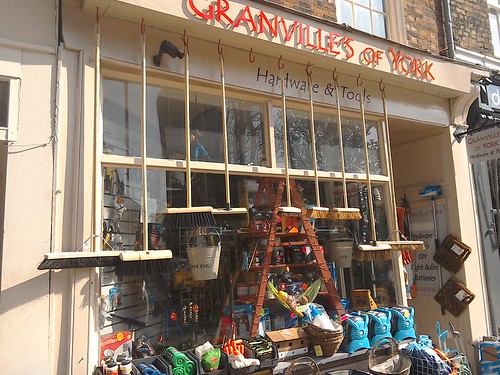
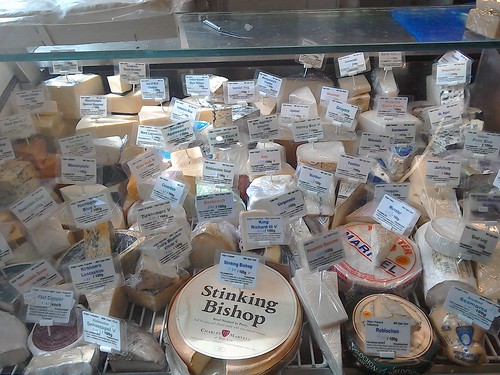
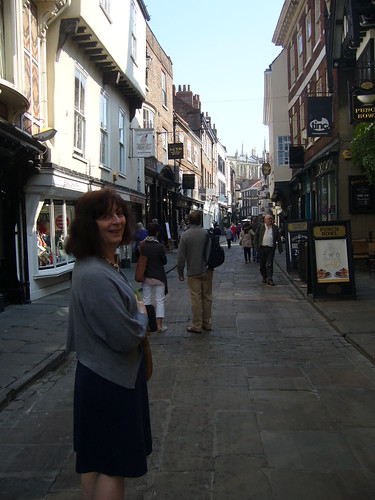

Climbing to the Minster roof. (I really like the "questing" expression of this picture.)
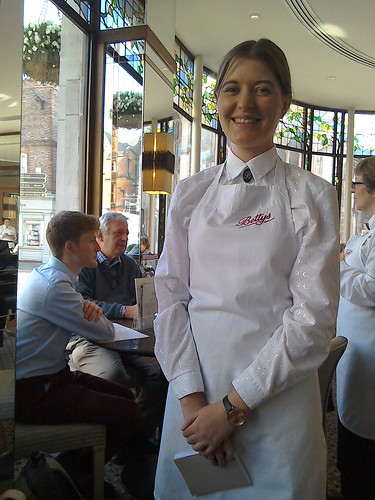
A Maid Cafe, Yorkshire Style

Breakfast Done Right
Blog: Don't Eat With Your Mouth Full (Login to Add to MyJacketFlap)
JacketFlap tags: Add a tag
I put a few pictures from my great-great-aunt Fanny Jane Butler's Bible book up here some years ago, but they were very blurry. Now I have a slightly more reliable camera (albeit still low quality) I'm putting up a few more. The catalyst for this is someone's writing about Fanny on-line in her capacity as a medical missionary and one of the first (if not the first) qualified female doctors to work in India - where she died, aged 39, having founded a hospital that survives to this day. I keep meaning to blog the little book that her niece Emma Tonge wrote about her, but that will have to wait a bit longer.
These are just a fraction of the total, but they give a flavour. Fanny was born in 1850, and it's anyone's guess as to how old she was when she made this scrapbook, but it seems like the production of a child to me, albeit not a young one, so I'm guessing the early 1860s. The colours have lasted very well, to say nothing of the feathers, flowers, leaves, hair, etc. Indeed, the long golden tresses seem almost too good to be true. Was there some other substance than hair that she might have used at that date? 

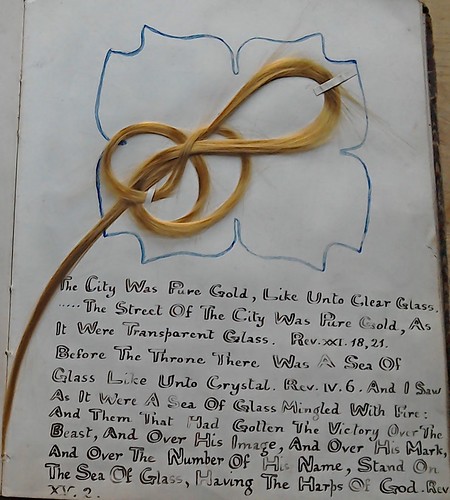
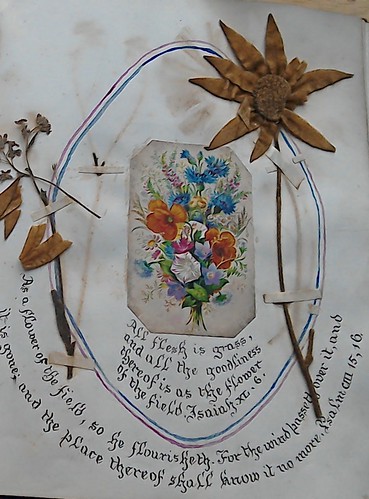



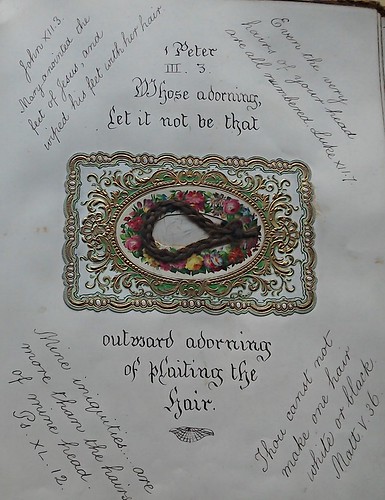

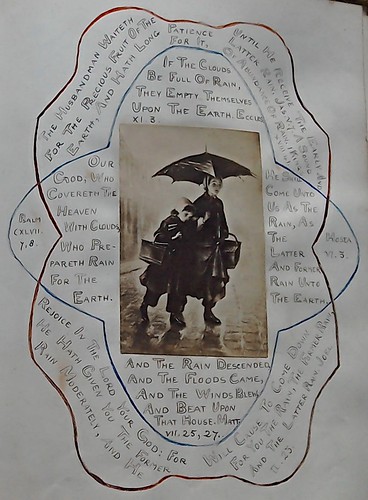
Blog: Don't Eat With Your Mouth Full (Login to Add to MyJacketFlap)
JacketFlap tags: Add a tag
I received my copy of the crowdfunded Alan Garner Festschrift, First Light, yesterday. It's made up of short tributes from a wide range of people. Obviously the figure central to the book is Garner himself (who remains silent), but this being my copy the person central to its reading is me, and it was in that spirit that my eye flicked over the contents page.
Some of the contributors are real-life friends, people I've eaten or drunk with, who have been to my house (or I to theirs): Susan Cooper, Dougald Hine, Ronald Hutton, Katherine Langrish, Neil Philip. (I suppose Helen Dunmore fits into this category, since I did once go to some kind of party at her house, but I was tagging along with someone else, and although we spoke - she was extremely charming - I'd be amazed if she remembers me.)
Some are online friends: David Almond, Amanda Craig, Elizabeth Wein.
Some are members of Garner's family: his daughter Elizabeth and son Joseph.
Some are people whose views or writing are always of interest, at least when they relate to the kind of thing that Garner is about: Robert Macfarlane, Hugh Lupton, Michael Wood, Philip Pullman, Neil Gaiman, Rowan Williams.
Others are writers whom (rightly or wrongly) I would not have particularly associated with Garner: Margaret Atwood, Frank Cottrell-Boyce, Stephen Fry, Cornelia Funke, Bel Mooney, Ali Smith.
There's also a bunch of people I've never heard of.
No contribution from Catherine Butler, sadly. I did offer, but by the time I heard about the project that ship had sailed. It's a shame, as I think it's fair to say - no false modesty here - that with the exception of Neil Philip I've been Garner's most important critic. Then again, Garner doesn't much like critics, and Erica Wagner (who put the collection together) is a journalist, not an academic. Still, it's a wonderfully strong cast, all told.
Probably there are too many contributors, in fact. Each gets only a few pages, and I'd rather have had a bit more from the ones with something to say than a phoned-in contribution from Stephen Fry. (Cornelia Funke makes the most of her brief space by offering not an essay or reminiscence but a striking drawing of Garner as Horned Man.) There's a strong family resemblance between many of them: a literary encounter with Garner's writing, typically in childhood, alerts the writer to the land, to language, to the numinous. This is followed by a personal meeting, and a bond that goes beyond but also reinforces the power of the books. It's an effective story, told well - but it's hard to make it fresh when you're the twentieth in line. Still, I'm delighted to have the book. Many of the pieces are excellent, and it has more nuggets than a KFC bucket meal. Essential reading for any Garner fan.
Blog: Don't Eat With Your Mouth Full (Login to Add to MyJacketFlap)
JacketFlap tags: Add a tag
WRONG
“We just founded a theatre company – can we have a grant to help us get it off the ground?”
“No way!”
RIGHT
“It’s exactly a hundred years until our theatre company’s first centenary – can we have a grant to mark the occasion?”
“Where do I sign?”
(This is just a little squib I put on Facebook - I'm putting a copy here too so that it doesn't get sucked betimes into oblivion's maw.)
Blog: Don't Eat With Your Mouth Full (Login to Add to MyJacketFlap)
JacketFlap tags: language, maunderings, nippon notes, Add a tag
I was very surprised to see that the OED's earliest entry for "clockwise" and "counterclockwise" is as late as 1888, with "anticlockwise" making its appearance a few years later.
I'd looked them up because I was musing on words like "widdershins" and "deasil". These two have always seemed an odd pairing. One's Germanic, the other Gaelic: one refers to the direction of the sun, the other to turning right. Although they are functional opposites, they get to the same (or in this case opposite) result via different workings and from different starting places too. What happened to their "true" opposites - the Germanic word meaning in the same direction as the sun, and the Gaelic word meaning turning left?
Also, neither is very common, and "deasil" in particular is a pretty rare word, so what (I asked myself) did people used to say before "clockwise" and "anticlockwise" came in, which obviously couldn't be before clocks with dials were invented? And, I added, did changing from the sun to a mechanical device as a way of orientating oneself ("orientating" is itself an interesting word in this context) reflect some wider epistemic shift from nature to technology as a source of reliable truth? I was expecting "clockwise" to show up some time around 1680. I couldn't imagine Robert Hooke not using it.
But I was 200 years out, and now I wonder what people were saying in the centuries between. Did they really have no use for the concept? How could you invent the steam engine or mine pumps or mass-produced screws without being to able to convey it - let alone walk round a church in a propitious direction?
(Of course I had to look it up in Japanese, where it turns out that clockwise is 右回り (migimawari - i.e. turning to right) and anti-clockwise is 反時計回り (hantokeimawari - i.e. turning against the clock). In other words, it exactly reproduces the inconsistency to be found in widdershins and deasil.)
Blog: Don't Eat With Your Mouth Full (Login to Add to MyJacketFlap)
JacketFlap tags: books, Add a tag
Blog: Don't Eat With Your Mouth Full (Login to Add to MyJacketFlap)
JacketFlap tags: current affairs, bullshit arguments, Add a tag
Not for the first time, I find myself agreeing with Jeremy Corbyn.
On the one hand...
... I don't like or trust the EU, especially in terms of its lack of democracy and its willingness to negotiate free trade deals involving assymetrical arrangements for US corporations to sue EU governments should they put their citizens' interests ahead of those of said corporations. (And if that's not what's in TTIP, they're doing a very poor job of advertising what is in TTIP.)
On the other hand...
... the Brexiters are a such a motley bunch of capitalist ideologues, racists and chancers that I find it hard to imagine delivering the country into their hands either. Corbyn talked about the consequent "bonfire of workers' rights", but to that we might add the bonfire of environmental and social protections.
As for the economics - I don't know, and I'm not convinced anyone does. On balance, I'm inclined to hold my nose with Corbyn, or abstain for the first time in my life, or perhaps donate my vote to my daughter, who'll be a few weeks short of her majority on 23 June, and is after all likely to be affected by the outcome for longer than I am.
Meanwhile, I have largely stopped logging things under "bullshit arguments" because life is too short, but I was struck by Stephen Kinnock's response to Boris Johnson's pointing out (correctly) that the US would never dream of pooling its sovereignty in the way that membership of the EU entails, to the effect that it already does so by being a member of NATO and the WTO, as if those were in any way comparable. I despise Johnson, but I also don't like having my intelligence insulted by Kinnock. There are far more effective ways he might have answered (for example by pointing out that the USA's size and wealth allow it to do things that the UK never could) than with this childish misdirection.
That was topped today, however, by Angela Eagle, who apparently said:
“There are no countries that trade with the European Union that don’t have to accept free movement, that don’t end up paying virtually the same that we pay into the European budget."
China? Japan? The USA? They have to accept free movement and pay into the EU budget in order to trade with the EU? Please.
So far this debate has sucked harder than a vacuum pump.
Blog: Don't Eat With Your Mouth Full (Login to Add to MyJacketFlap)
JacketFlap tags: family history, bristol, real life, Add a tag
I got back from my mother's just in time today to attend the unveiling of a blue plaque to the Conscientious Objector Walter Ayles, just round the corner from my house. He was arrested (I think they said) 100 years ago today, for leafleting against conscription. As someone whose own grandfather was jailed as a CO (unlike his brother Guido, who was exempted in March 1916, less than a fortnight after conscription came into force), I had a natural interest - but it was an impressive crowd in any case. There must have been 100 people standing in Station Road, listening to speeches. They included a choir in period dress, but the whole thing felt like a bit of a time warp, of the good kind.
"I do not believe that hate can destroy hate. I believe that hate can only be transformed by love. That is the deepest and most practical religion I know." (Ayles's statement to the tribunal that jailed him.)
Blog: Don't Eat With Your Mouth Full (Login to Add to MyJacketFlap)
JacketFlap tags: maunderings, Add a tag
I went to get a couple of keys cut today, and while standing in the key-cutting shop I was struck (not for the first time) by the rather strange assortment of things that such shops do. I may even have posted here about it before, but if so, I'm doing it again.
Keys, shoe repairs, trophies and umbrellas. Why just those things? What do they have in common?
In an underground arcade in Osaka a couple of weeks ago I passed a stall that sold exactly the same things (except the umbrellas) so I feel there must be some inexorable reason behind it beyond the random accumulation of associations in the minds of British shoppers.
Blog: Don't Eat With Your Mouth Full (Login to Add to MyJacketFlap)
JacketFlap tags: nippon notes, voyage to japan, real life, Add a tag
So, this was my last day. Packed as my schedule had been, there were a few things I hadn't managed to squeeze in - notably a visit to Tsukuji Fish Market, which was my last chance to see it in its iconic location, as it's moving later this year. But there really wasn't a convenient moment - and much as I could have got up early in Osaka and gone to its excellent fish market instead (I mentally practised saying in a hipsterish way, "Oh yeah, everyone goes to Tsukuji, but Osaka's where it's at if you want the very freshest octopus - and no queues, man, no queues. Not many people know about it." But I decided that would make me a dick.) I also didn't "do" either the Tokyo Tower or the Sky Tree, but seeing that the morning of the 6th dawned bright and clear, I decided at least to walk from my Shinjuku hotel to the Tokyo Municipal Government building, the two towers of which each boasts an observation deck on the 45th floor, the visiting of which happens to be free.
Talking of queues, it was striking how the queues to the north and south towers were so unequal. Here are the two entrances, the south on the left and the north on the right. As you can see, there's a fairly long queue for the south tower, but none at all for the north - not because it's a less impressive sight, but simply because human psychology (at least in the UK and Japan - I can't speak for other homo sapiens) compels us to join a queue. Anyway, in the absence of a queue, how would you know there was even anything worth seeing?
Here are a couple of sights from the top, but you can't really get the a good impression with a photo. On the horizon snowy Mount Fuji is hazily visible, but I don't think my camera will show you. But you can see the tops of the cherry trees in the park below, where later one picnickers would be hanami-ing.
In fact, today was the day I had agreed with my friend Satomi (whom I met at a conference in Worcester last year) to view cherry blossom ("hanami" means flower viewing), a big thing in Japan at this time of year. And the weather couldn't have been better for it: gentle breezes, sunshine, and a temperature of about 70F/21C. I'd originally suggested Ueno Park, since that's the one I'd heard of in connection with hanami, but Satomi's professor had suggested Shinjuku Park as a more convenient and less crowded alternative. So, I get to use my hipster voice after all, at least in the matter of park choice.
First stop was Satomi's favourite boulangerie (and she ought to know - her boyfriend's a baker), where we bought various rolls and cakes to supplement the okashi already in hand. As you might expect, a Japanese bakery is a pretty colourful place. I was taken by the matcha and yuzu baton and the squid-ink baguette - while the sakura melon buns were of course a must:
And here's the final picnic, along with one distinctively British addition (can you spot it, readers?). I admit this isn't the healthiest-picnic in history, but it certainly tasted scrummy. Anyway, green tea's good for you, isn't it?
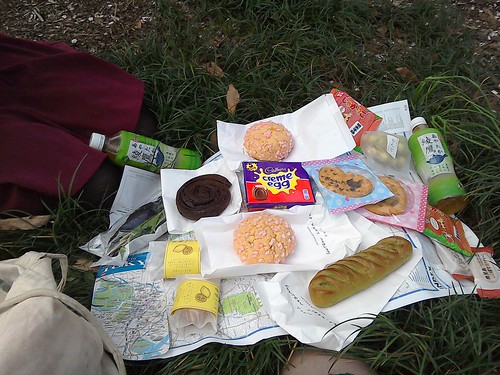
So then we did some walking and admiring what was a very beautiful park. First, I tried to get Satomi to reproduce the sakura kanji, which shows a woman standing next to a tree. The kanji woman has something on her head, which I thought might reasonably be interpreted as cherry blossom:

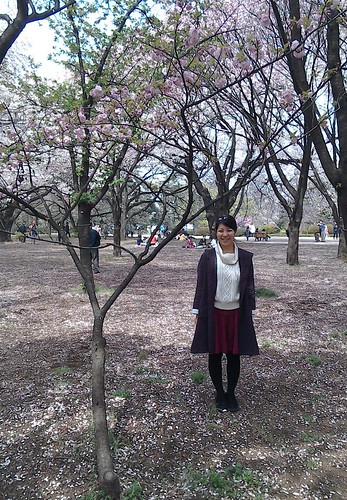
Sermons in stones, tongues in trees, and books in the running brooks, I think you'll agree. Here are some of our other hanami shots from Shinjuku Park:
Satomi showed me the picture book she's just published, about a tree as it happens. At one point, the wind blows the petals from the tree - and just as we reached that page, it happened in reality, which was magical:
Afterwards we went shopping for anime-related trinkets, especially with a Madoka Magica connection, and were pretty successful. Satomi hasn't seen the series, so of course I went into full proselytic mode, which I hope wasn't too trying for her, but in any case seeing all the Sailor Moon material was a natsukashii experience for her, I think. Then it was on to Mihoko Tanaka's house. She is the academic who wrote the book on the reception and translation of British children's fantasy in post-War Japan, which I mentioned here not long ago, and also Satomi's adviser. Mika, who had also been at the conference in Worcester, was there too, as was Mihoko's partner, who happens to be an excellent cook (as well as painter, publisher, etc.). So, it was a very convivial way to spend my last - for now! - evening in Japan. Food, since you ask, included tofu and chirashiizushi, and absolutely delicious:
The next morning I woke early, and groped my way to the airport bus. At Narita I had a lettuce dog, in honour of Miki Sayaka, who is seen eating this meal in both Episodes 1 and 7 of Madoka Magica (including during her fateful conversation with Hitomi):
The flight back was uneventful. I watched the second Attack on Titan movie, which was even worse than the first, and also The Big Short, which I liked a lot. In between, I reflected a little on my experiences of speaking Japanese over the previous eleven days. I noticed, in my casual encounters with people on the street, three different responses to this Japanese-speaking gaijin. Let's say that I'm asking where the post office is:
1) In the first scenario, the person answer my Japanese question in Japanese. From my point of view this is ideal (as long as I understand the reply), since it's good practice and also implies that my question made sense:
Me: Anno, sumimasen. Yuubinkyoku wa doko desu ka?
Nihonjin: [Ah, a foreigner, but their Japanese appears passable] Neko Café no tonari desu ne.
Me: [Result!] Arigatou gozaimasu!
2) In the second scenario, the Japanese person recognizes that my Japanese isn't that great and answers in English. Of course, I'd rather they answered in Japanese, but I see where they're coming from:
Me: Anno, sumimasen. Yuubinkyoku wa doko desu ka?
Nihonjin: [Ah, a foreigner, I will be helpful and speak in English] It’s next to the Cat Café.
Me: [A soup of sweet and sour emotions] Arigatou gozaimasu.
3) In the third scenario, the Japanese person sees a gaijin, and cannot accept that the sounds coming out of their mouth are Japanese words:
Me: Anno, sumimasen. Yuubinkyoku wa doko desu ka?
Nihonjin: [Ah, a foreigner! What do I do? What do I do?] Wakaranai, gomenasai! [Walks speedily on.]
All three of these happened, though the last one only once.
With longer encounters in shops, I've had some excellent experiences, and the improvement in my Japanese since last year has paid dividends, but it's not always easy. I feel I need to establish my Japanese-speaking credentials quickly, so as to forestall a switch to English, and that makes me tense and hence less able to convince - but if I can get past that point, often I find myself "in the zone", and able to convey and understand (if imperfectly) quite a lot. Even so, sometimes I've been hauled back from this position, as in the following examples - where you must imagine that everything is in Japanese except the parts in inverted commas.
1) In Dazaifu, I’m considering buying some mentaiko for private consumption
Me: Do they need to be kept in a refrigerator?
Shopkeeper: Yes, although they’ll last for up to one day at room temperature.
Me: That’s a shame. I’m not sure I have a refrigerator in my hotel room. I hear they go well with plain rice, is that right?
Shopkeeper: Yes, they’re good with rice. Rice is “rice”.
Why did she need to explain that the word “gohan” meant “rice”, when I’d already used to word myself? Everything was going so well!
2) I’m looking for postcards in Kyoto. There is a stand with twelve designs, one for each month of the year, but the April section is empty. I buy two of the others anyway.
Me: I’ll take these two, please.
Shopkeeper: That’s 400 yen.
Me: By the way, do you have any with the picture for April?
Shopkeeper: Ah, the cherry blossom? No, I’m afraid we’ve sold out.
Me: Oh well. I’m not surprised. This is the season for it, after all.
Shopkeeper: Yes, we’re sold out. “Sold out.”
Again, it was pretty clear that I understood “sold out” in Japanese, so why repeat it in English? Perhaps my Japanese wasn’t perfect in these exchanges, but I’m sure it was comprehensible. I don’t find this kind of thing annoying, exactly – both these people were really friendly, and trying to be helpful – but it does subtly sap one’s confidence. I also don’t quite understand the mental processes involved. I suppose it's mostly a matter of habit.
Oh well, next time I'll know more, and these kinds of difficulties will have diminished further - is my pious hope. Anyway, now I'm back in Bristol, and just about over jet lag, and on Monday I'll be teaching again. Shikata ga nai!
Add a Comment
View Next 25 Posts


